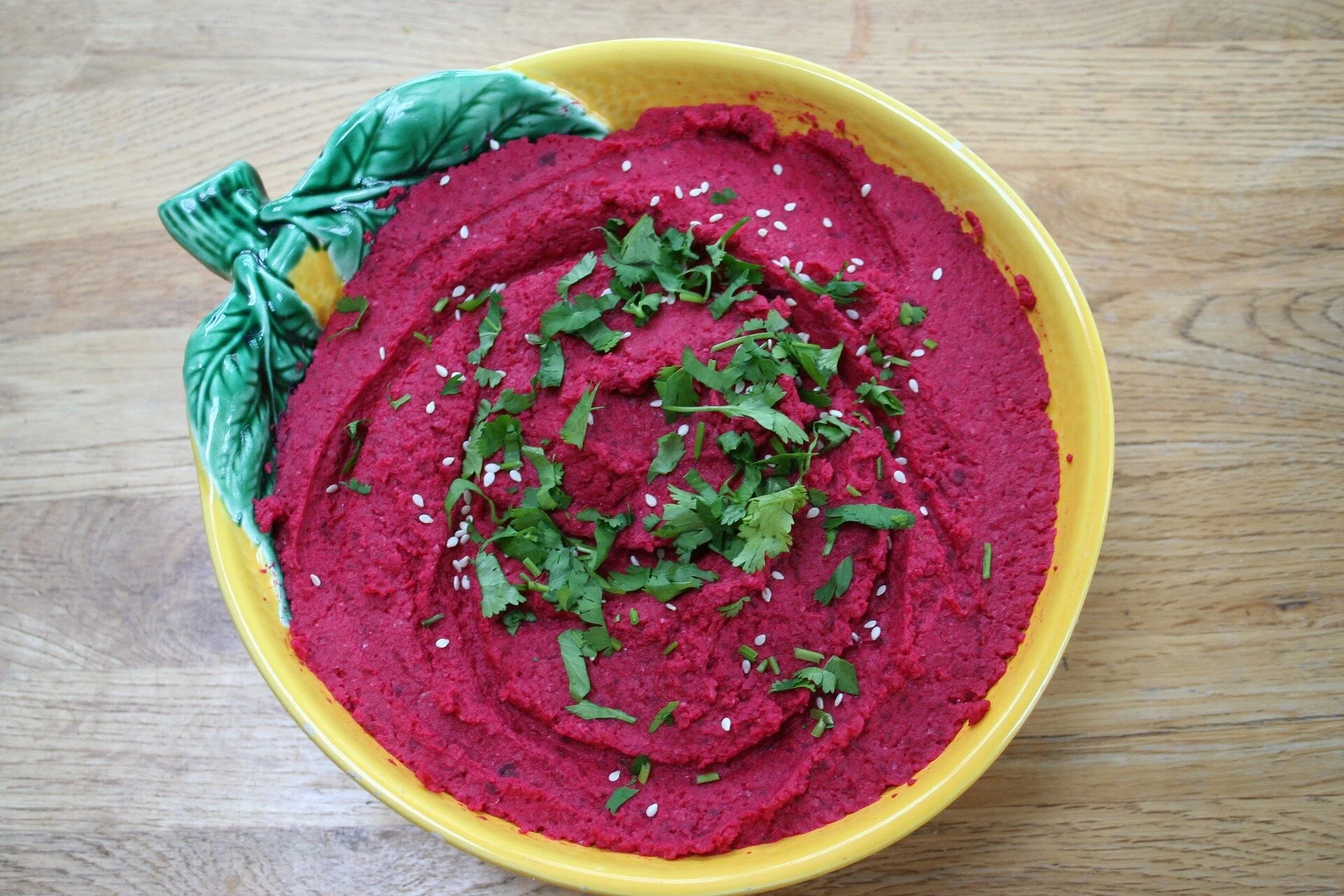Can Beetroot Help You Stay Up Beet During Exercise?
Okay, it’s time for those corny jokes to beet it!
Beetroot, usually consumed as a juice, is a dietary source of nitrates that you can use to increase your athletic potential.
So, how does it work? These things called nitrates get broken down during digestion and become something called nitric oxide. Nitric oxide expands blood vessels to increase blood flow, which improves your ability to use oxygen. Consuming beetroot before exercise has been shown to improve endurance, increase both strength and power output, and decrease the amount of oxygen needed during exercise. Studies have also shown that beetroot juice can help reduce exercise-induced muscle soreness. This is all promising, but before we stain our teeth pink from gulping beet juice, let’s see what else beetroot can do for us.
Main Benefits:
More Efficient Energy Production: The nitrates in the beetroot decrease what is called a ‘proton leak’ in the process of making ATP (your main source of energy), so it allows your body to put in less work to make energy.
Enhances Muscle Contraction: Nitric oxide improves the efficiency of calcium ion channels which are needed to cause a muscle contraction.
Increased Endurance: During exercise, the increased nitric oxide assists oxygen during exercise, so it allows your body to continue to do work without having to inspire more oxygen. Think of nitric oxide like a personal assistant for oxygen during exercise. Increasing the maximum oxygen utilization capacity allows you to push through a workout at the point you would usually stop. Of note, these effects in elite athletes are not as prevalent. This may be due to the natural production of nitrates in the body or the increased ability to use oxygen that comes from extensive training.
Power Output: Nitric oxide has a more significant effect on Type 2 muscle fibers than Type 1. Its effects are most beneficial when the exercise is of the high-intensity type with short resting times. So, think of that HIIT workout you might have done yesterday vs. the long run you have planned for tomorrow. Since oxygen delivery is improved with nitric oxide, your heart rate can recover faster, allowing you to keep going.
Decreased Muscle Soreness: Beetroot consumed after exercise over 24 - 72 hours has been shown to reduce muscle soreness.
Increased Cardiovascular Health: If you are someone who deals with hypertension (high blood pressure), you may find this article beneficial.
So I have made it pretty clear that the majority of the benefits of beetroot are because of the great helper nitric oxide, but are beets the only source?
Sources of Dietary Nitrates:
Dietary nitrates are found in many fruits and vegetables, but some foods contain more than others. Beetroots, celery, cress, chervil, lettuce, spinach, and arugula contain more than 250 mg of nitrates per ½ cup (which is a lot). So why am I focusing on beets? Beets are much easier to juice, and so offer more nitrates per serving compared to other high nitrate vegetables such as leafy greens..
For optimal effects, you should consume about 1-2 cups of beetroot juice before a workout. It is important to note that nitrate content varies widely because it comes from the soil, so it can vary crop to crop, field to field, beet to beet. In addition because juice is more concentrated (like mentioned earlier) you would have to eat about 6-8 whole beets to get the same amount of nitrates that are in 1-2 cups of beet juice. Lucky, your body is able to utilize 100% of the nitrates you consume from beets.
Beyond beet juice, you can find a higher, standard concentration of nitrates in products such as Beet It Sport shots or different powders. These types of products are more convenient if you are looking for efficiency, don’t have a juicer, or don’t want to consume that much liquid before a workout. For reference, Beet It Sport is a concentrated beetroot juice in a 70 mL bottle. There is a guaranteed 400 mg of nitrate per serving which is equivalent to 6-8 beets or ½ liter of regular beetroot juice.
If nitrates are the big star here, then why can’t you just buy a Nitric Oxide powder and call it a day?
Well, of course, it's more complex than that! There are isolated forms of dietary nitrates on the market such as sodium nitrate and are claimed to have the same performance-enhancing effects as beetroot and other vegetables. However, not only is safety a concern, but studies also show the performance-enhancing effects are modest and not comparable to nitrates from whole vegetables.
In addition, It’s important to consume nitrates from whole vegetables because isolated nitrates and those added to processed meats as a preservative can form N-nitrosamines which is a potent chemical carcinogen. Whereas the carcinogenic properties of nitrates are negated by the other properties found in fruits and vegetables such as antioxidants. Vegetables are such a wonderful thing :)
Dosing & Timing:
Let’s get back to how much and when. The most common amount of beetroot juice researched is between 70-500 mL (2-16 ounces) up to 3 hours before exercise. It is not recommended to drink it less than an hour before exercise. Reason being, the body needs time to move the nitrates into the bloodstream and start converting it to nitric oxide. There is no evidence to show a benefit of chronic versus acute use for recreational exercise. However, if you are going to use it for an athletic competition, it is recommended to consume the juice for about 6 consecutive days before the day of competition.
Things to Know:
Efficacy Interference: When consuming beetroot supplementation, avoid using antiseptic mouthwash at the same time. This is because the bacteria in the mouth play an important role in the nitrate → nitric acid conversion.
Pink Pee: Consumption of beetroot may cause your urine to become pink or red, which is harmless but often confused for blood.
Indigestion: Beetroots contain fructans, a form of FODMAPs. Fructans are short-chain carbs that feed your gut bacteria, which can cause some unpleasant digestive upset in sensitive individuals.
Drug Interaction: Since beetroot decreases blood pressure, those on blood pressure-lowering medication such as nitroglycerin, may be cautioned, to prevent a potential unsafe drop in blood pressure. Always consult with your doctor first.
Kidney Stones: Individuals prone to kidney stones should avoid beetroot juice due to the high levels of oxalates, which can contribute to kidney stone formation. Take note that the levels of oxalates are much higher in the leaves than the root itself, but the root is still high in oxalates.
The Bottom Line
Beets are sweet, delicious, and full of nutrients. They are a great natural source of nitrates and can improve athletic performance and even long term heart health! They can be eaten raw, boiled, baked, juiced, etc.; whatever tickles your fancy and fits your lifestyle. If you want to maintain balance, you can definitely consume a mix of high nitrate food in a meal 3 hours before your workout for balanced nourishment. Remember that beets won’t give you the same feeling as a pre-workout or caffeine (not the same effect). It won’t feel like a jolt of energy, however you will notice that you push through the difficult parts of your workout with more ease. It’s like having an extra gear to keep going, or a second wind.


